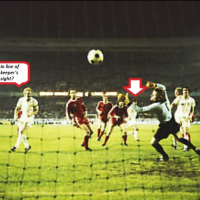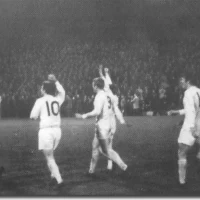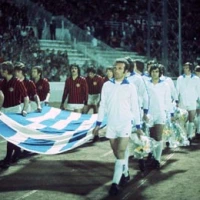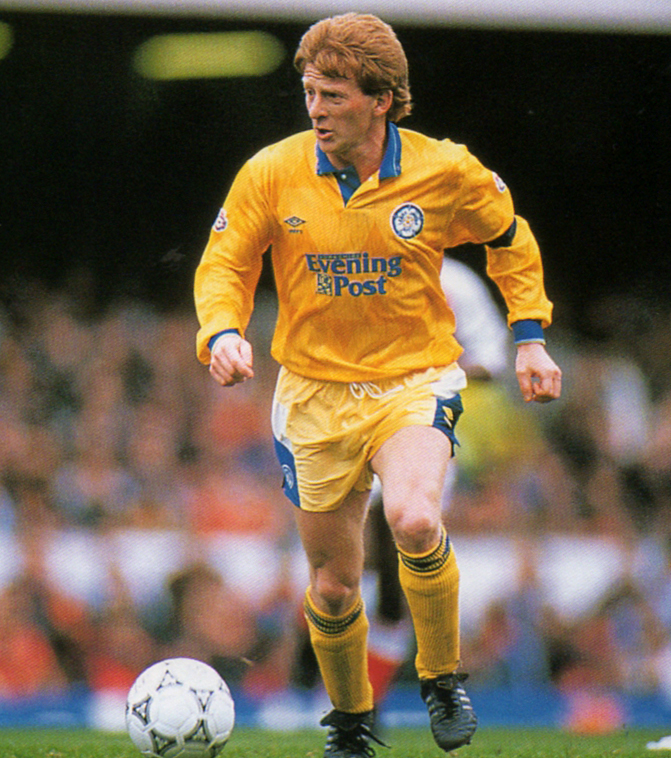
Hillsborough – an Anfield tribute
Incredibly, 27 years have flashed past already, since that awful spring day in 1989, when 96 football fans turned up to follow their team towards Wembley – and never came home again. I was one of a paltry 14,915 at Elland Road that day, watching Leeds United eke out a 1-0 home win over Brighton as Sgt. Wilko’s first half-season meandered to an uneventful close. When the news filtered through that there had been “trouble” in the semi-final between Liverpool and Nottingham Forest, the initial reaction was as predictable as it was wide of the mark: “the scousers are at it again.” Heysel was still fresh in the memory, English clubs were still banned from Europe – and nobody judges football fans quite like other football fans (or, at least, so we thought until the Sun got going). We were tolerably certain, as a bunch of Leeds supporters, that the Liverpool fans had caused more bother, and we glumly predicted another indiscriminate backlash that would envelop us all.
As we were on our way out of Elland Road, though, the full, awful impact started to hit home. There were deaths – people had actually died at an English football stadium – something that hadn’t happened on anything like this scale before. Apart from the Bradford fire – a very different disaster – the only comparable event in England had been the Burnden Park tragedy at Bolton, when 33 had lost their lives in a crush at a hopelessly inadequate ground with over 85,000 attending an FA Cup quarter final. That had been well over a generation before, in 1946. Surely, it couldn’t really be happening again, on an even greater scale, in the shiny bright late eighties?
But as we looked on in horror, the TV and radio news brought increasingly sombre statistics while the death toll steadily mounted – and later the sheer ghastliness of the event would be magnified as the tale of criminal incompetence and official negligence was revealed – and as the filthy end of the press, abetted by weaselling functionaries in Government and the Civil Service, jumped on the “blame the fans” bandwagon that other football supporters had vacated as soon as the scale and nature of the catastrophe became apparent.
If you were a Leeds United fan, a chill ran through you when you thought about what had happened; when you realised that this had, indeed, been a disaster waiting to happen. The Hillsborough Stadium was so oriented that the organising authorities found it easier, more convenient, to allocate stands to the fans of opposing semi-finalists based on where the bulk of those fans were travelling from. So, in 1989, Forest got the large Kop End, while the much larger Liverpool contingent were shovelled into the Leppings Lane End behind the opposite goal. It was the same the year before, when the same two teams contested the 1988 semi-final. And, similarly, in 1987, when Coventry of the Midlands faced Leeds United of the North, the greater Leeds numbers found themselves packed tight in Leppings Lane, while the smaller Coventry band enjoyed the wide open spaces on the Hillsborough Kop.
So two years prior to the Hillsborough Disaster, I and thousands of others were packed into the smaller Leppings Lane End on that April the 12th of 1987. The atmosphere was electric; it was United’s first FA Cup semi for ten years and Billy Bremner‘s men had been in terrific form as they challenged for a double of the Cup and promotion to the old Division One. We were jammed in like sardines on that terrace; looking up you could see fans climbing out of the back of the crowd, up over the wall and into the upper tier of the stand where space was more freely available.
Down on the packed terrace, it was swaying, singing fever pitch from before the kick-off right through to the heart-breaking climax of extra time. You weren’t an individual, you were part of a seething mass that moved as one, shouted and sang as one and breathed – when it could – as one. When Leeds scored their two goals, it was mayhem in there – you couldn’t move, you couldn’t breathe, you just bobbed about like a cork on stormy waters, battered by the ecstasy of the crowd, loving it and, at the same time, just a bit worried about where your next gulp of oxygen was coming from. Leeds took the lead early, David Rennie scoring down at the far end. That shattering celebration was topped when, having gone 2-1 behind, Leeds clawed it back right in front of us as Keith Edwards headed an equaliser and the United army exploded with joy. It was the single most jubilant and yet terrifying moment of my life to that point.
Later, after the match was over, as we trailed away despondently from the scene of an heroic defeat, there was time to reflect on what had been an afternoon of highs and lows, with the physical reaction of that epic few hours inside a pressure cooker swiftly setting in. With the benefit of twenty-twenty hindsight, it’s easy enough now to look back over twenty-nine years and think: “Yes, we were lucky.” Lucky that the incompetence threshold wasn’t passed that day when we were there. Lucky that enough of the terrace fans got into the upper tier to relieve the pressure ever so slightly – was that a factor? So lucky that it wasn’t us, when it easily could have been. Lucky, ultimately, to be alive and kicking still. The warning signs were there – they just weren’t perceived by those of us – the fans – for whom it had just been another somewhat uncomfortable but thrilling spectator experience. That those signs weren’t recognised or heeded by the people responsible for public safety is a far more damning fact.
Poignantly enough, the luck we’d had that day wasn’t shared by 96 Liverpool supporters two years later. They set off happily, to support their heroes – and, tragically, they never returned. Twenty-seven years on, the wait for justice has been torturous for all concerned. The families and friends left behind, veterans of over a quarter of a century of grief and loss, have never given up their courageous fight, despite cover-ups and official brick walls, despite scurrilous press coverage which reached an obscene and disgusting low point with the Sun – that vanguard of the gutter press – and its sickening lies.
Now, there is an inquest verdict at last. We have the official findings of unlawful killing and, surely there is finally justice for The 96. And indeed for all of the friends and family they left behind. Yet, even now, with the South Yorkshire Police Force unreservedly accepting the inquest findings, we still have the likes of Thatcher aide Bernard Ingham refusing to apologise for his own scandalous remarks in the wake of the disaster, now utterly discredited as he himself has been. There is no remorse or regret from Ingham, who stands as a symbol of official ignorance and deceit. All he is good for now, this bitter, bigoted old man, is sitting at home and growing his comedy eyebrows.
Twenty-seven years is far too long for anyone bereaved of their loved ones to wait – but justice is worth waiting for, if only so that the dead can sleep more peacefully and the living can have closure of a sort – and move on with the business of being alive. And – as a footnote – how appropriate it would now be if Liverpool FC could go on to win the Europa League after that thrilling victory over Borussia Dortmund – just for the families, the friends and those that were lost on that fateful day and in its aftermath..
There could be no finer or more fitting tribute to The 96, surely, than this long-awaited justice that has been served today – and the return of the Champions League football to Anfield.
Let it be.
























